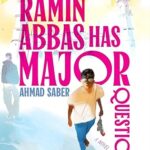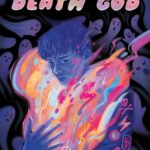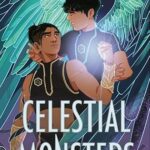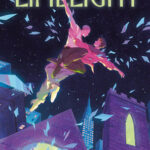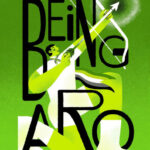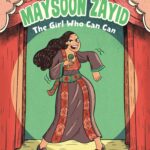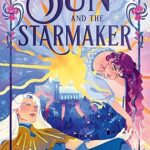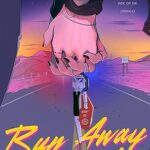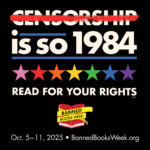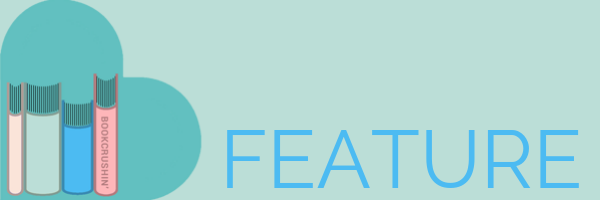
Feature: Writing Our Queer Stories
In Thank You for Calling the Lesbian Line, Elizabeth Lovatt weaves together history, memoir, and cultural reflection to honor the everyday lives of queer women, those who called, volunteered, and lived boldly (or quietly) through a time when being out came with even greater risks. Inspired by her call to action to write down and share our stories, we’re stepping into that legacy. Both of us have shared pieces of our own queer journeys: the messy, joyful, confusing, and deeply human paths that brought us to where we are now. We thought we’d share a few more reflections now that Pride Month is over, because we are proud all year long, and encourage you to do the same!
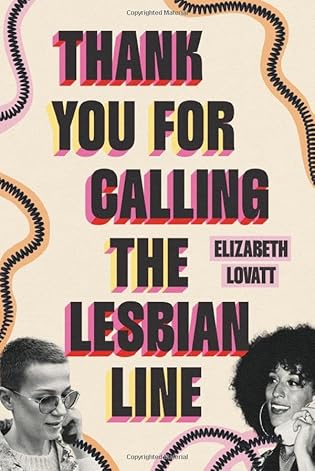
Thank You for Calling the Lesbian Line
by Elizabeth Lovatton February 6, 2025
Genres: Non-Fiction
Bookshop
Goodreads
An author creates a narrative blend of history, cultural criticism, and memoir in celebration of everyday queer women, based on a lesbian helpline that existed in North London in the nineties.
With warmth and humour, Elizabeth Lovatt reimagines the women who called and volunteered for the Lesbian Line in the 1990s, whilst also tracing her own journey from accidentally coming out to disastrous dates to finding her chosen family. With callers and agents alike dealing with first crushes and break-ups, sex and marriage, loneliness and illness, this is a celebration of the ordinary lives of queer women.
Through these revelations of the complexities, difficulties and revelries of everyday life, Lovatt investigates the ethics of writing about queer 'sheros' and the role living-history plays in the way we live today. What do we owe to our lesbian forebears? What can we learn from them when facing racism, transphobia and ableism in the community today?
Steeped in pop culture references and feminist and queer theory, Thank You for Calling the Lesbian Line is a timely and vital exploration of how lesbian identity continues to remake and redefine itself in the 21st century, and where it might lead us in the future.
My Queer Story in a World That Often Pretends I Don’t Exist – Christy
I didn’t always have the language for who I am. I didn’t always know that erasure could feel like silence, like a stranger assuming my partner’s “husband” would be the one to fix something at our house. Or like the moment a co-worker tells a room full of executives that there’s “no diversity on this team,” and I have to decide whether to correct her… again.
When I received Thank You for Calling the Lesbian Line, I was struck by the call to action: to write down our stories, the messy and magical ways we’ve come into ourselves. So here’s mine, or at least part of it.
For a long time, I existed in what I call the “straight-presenting fog.” Not because I wanted to hide, but because I didn’t yet know what I was allowed to claim. I’d been raised in a culture that treated queerness as both invisible and impossible. Somehow, I absorbed the values of loving your neighbor but not the hate, and yet the shame still found its way in. It took me years, a divorce, a best friend who asked the right questions, and a whole lot of YA novels to begin untangling what had always been there.
Being in a relationship with a woman didn’t solve it overnight. In fact, it brought new challenges: navigating the ways we were both taught to serve men, how we still shrink or overcompensate in queer spaces, how we still feel like we have to explain ourselves just to exist. I’ve been hit on at work and had to clarify that yes, I have a partner, and yes, she’s a woman. I’ve had to come out at board meetings. I’ve had to correct even the people closest to me.
And yet, there’s joy. There’s power in naming your truth in a world that wants you to keep quiet. There’s something radical about saying, “Actually, I’m here.” I’m here in the makeup and the tattoos. I’m here in the leadership roles and the loud opinions. I’m here when I pick up a book and see myself reflected back. I’m here when I meet someone who says, “Oh, you too?”
I don’t know who I’d be without the queer community, without the bloggers, the authors, the reddit late bloomers, the friend who held a mirror up to me and said, “You already know. You just haven’t said it yet.”
So this is me saying it. I’m queer. I’m proud. And I’m still figuring it out, but I’m not hiding anymore.
Loathing the Journey I Took Even If It Wasn’t too Far to Go – Kelly
Growing up I did not have a single visible queer person to gain the knowledge that it was okay to not feel the way all the rest of my friends felt. I joke about being in HS and remembering the one person everyone called “gay” and being scared to have anyone call me that, I also tell the story of how I dated 4 different guys in HS and all but 1 are living happily gay lives now (the one is straight as far as I know!). So we all found each other in the safety of presenting heteronormativity when we were expected to be dating and going to prom and not being bullied for being the gay ones.
Once I was in college, it was a whole new world, I immediately gravitated towards the groups of people who were queer openly and I found some peace with myself. When I was still first navigating the new terms and new feelings I asked one of the people from my HS friend group, how they knew for sure, since they dated men for most of their lives, and what changed? I was openly curious, because I was still practicing some seriously hetero behaviors while also secretly hating it. I needed to know how to be sure, and unfortunately that friend took my questioning to be off-putting and never really spoke to me again, even though I was struggling with myself, I was looking for a crutch, something to help me get to the place I needed to be. I still regret to this day, that I somehow hurt her by asking the questions trying to get answers to help me.
Flash forward just one year and I was solidly identifying as bisexual, I had dated men in the past, and I would still here and there, but I knew I belonged in the queer spaces now. I often forced myself into relations with men because it felt like those were the only people who were interested in me, but eventually I found my strength and stopped hiding whom I was and became the more visibly queer person that I am today.
I identify as queer, as a lesbian, and as pansexual, mainly because Pedro Pascal is hot (duh!), but no seriously because I care about being inclusive with trans folks. I can be attracted to the person, not the gender or the parts and that is what that means to me.
So my advice and my story is mainly about how being visible and having representation is so important, as is being open to those who ask you questions, you never know where they are coming from. As an elder queer, I take on my responsibility seriously to help other queer folks understand their own sexuality.

